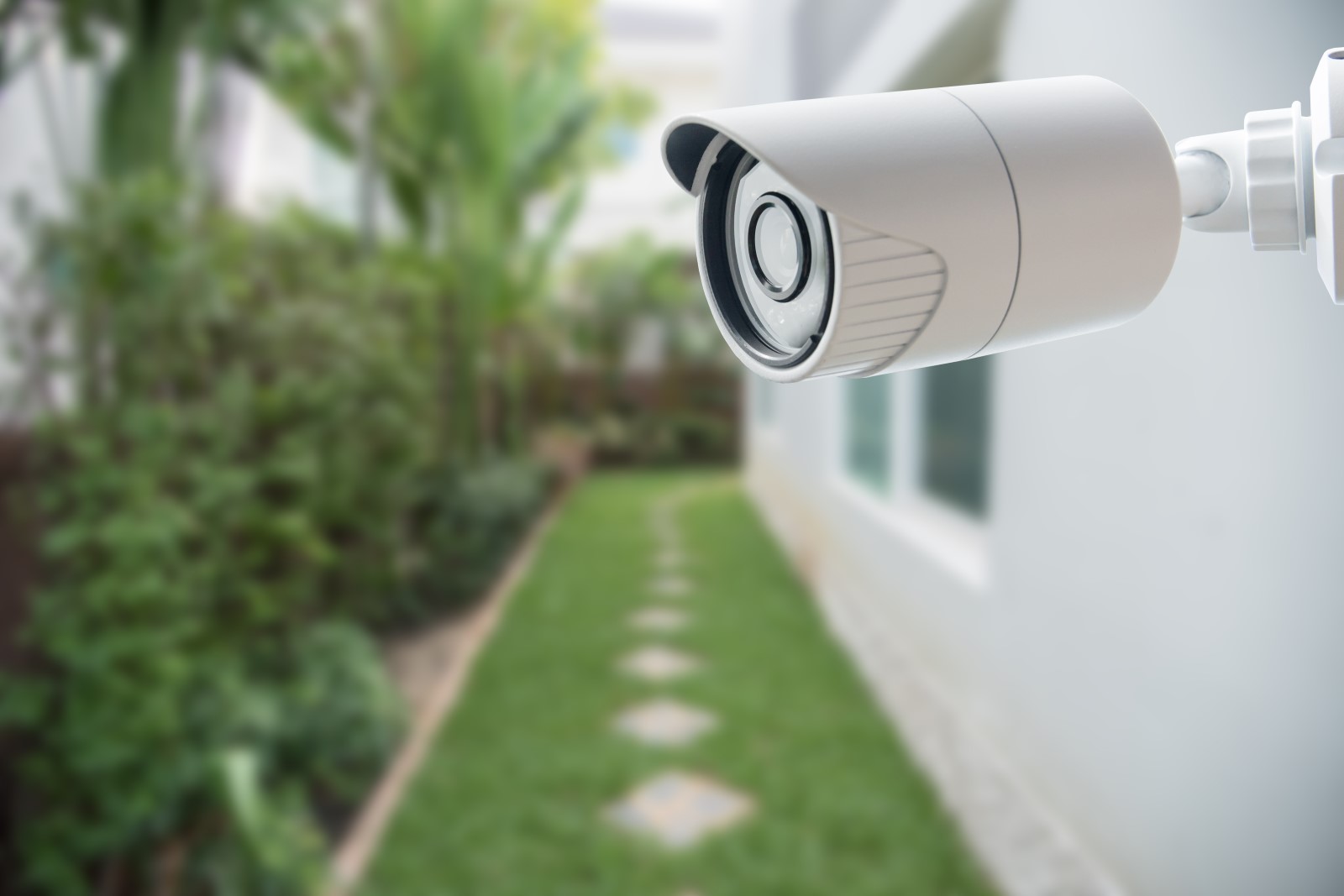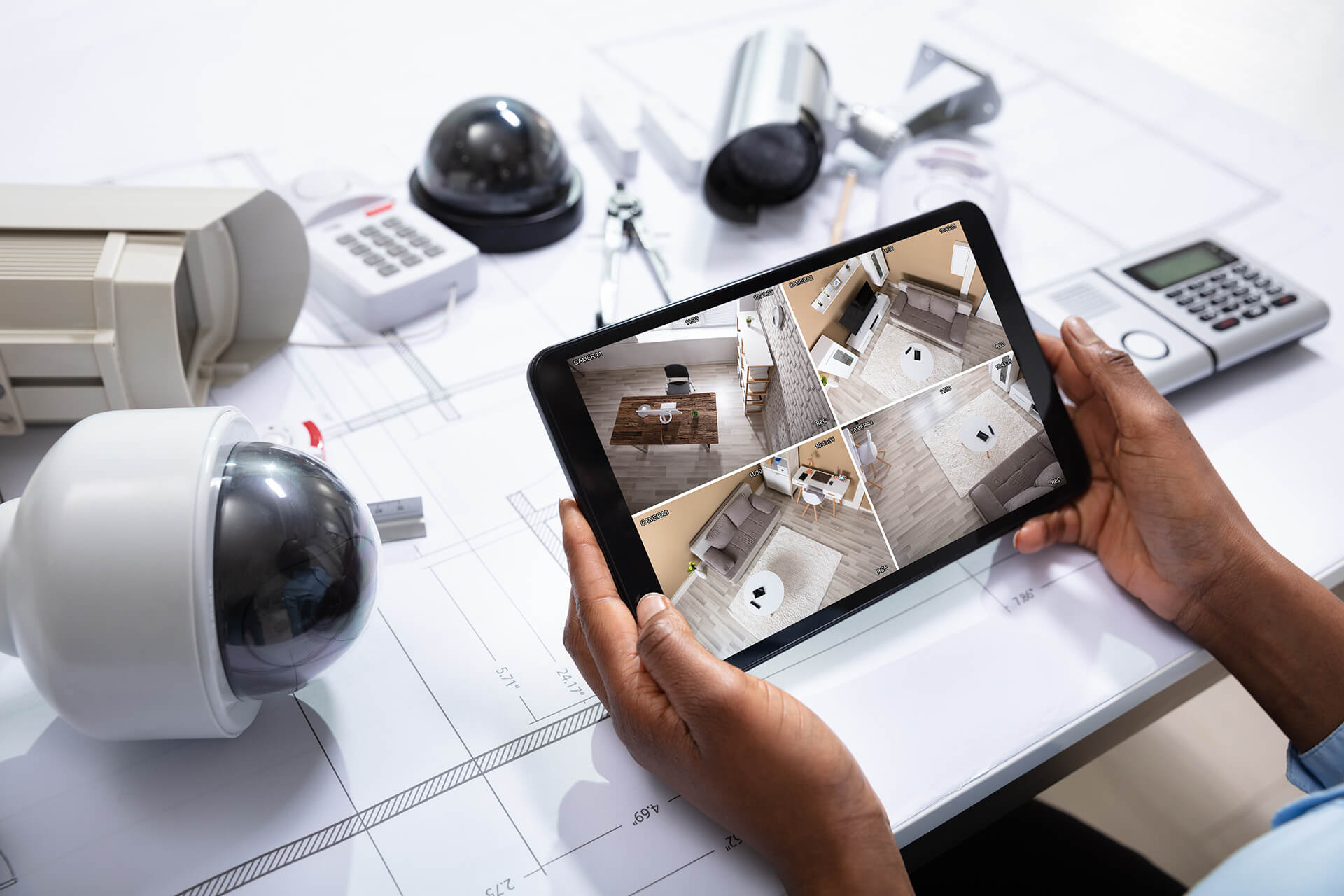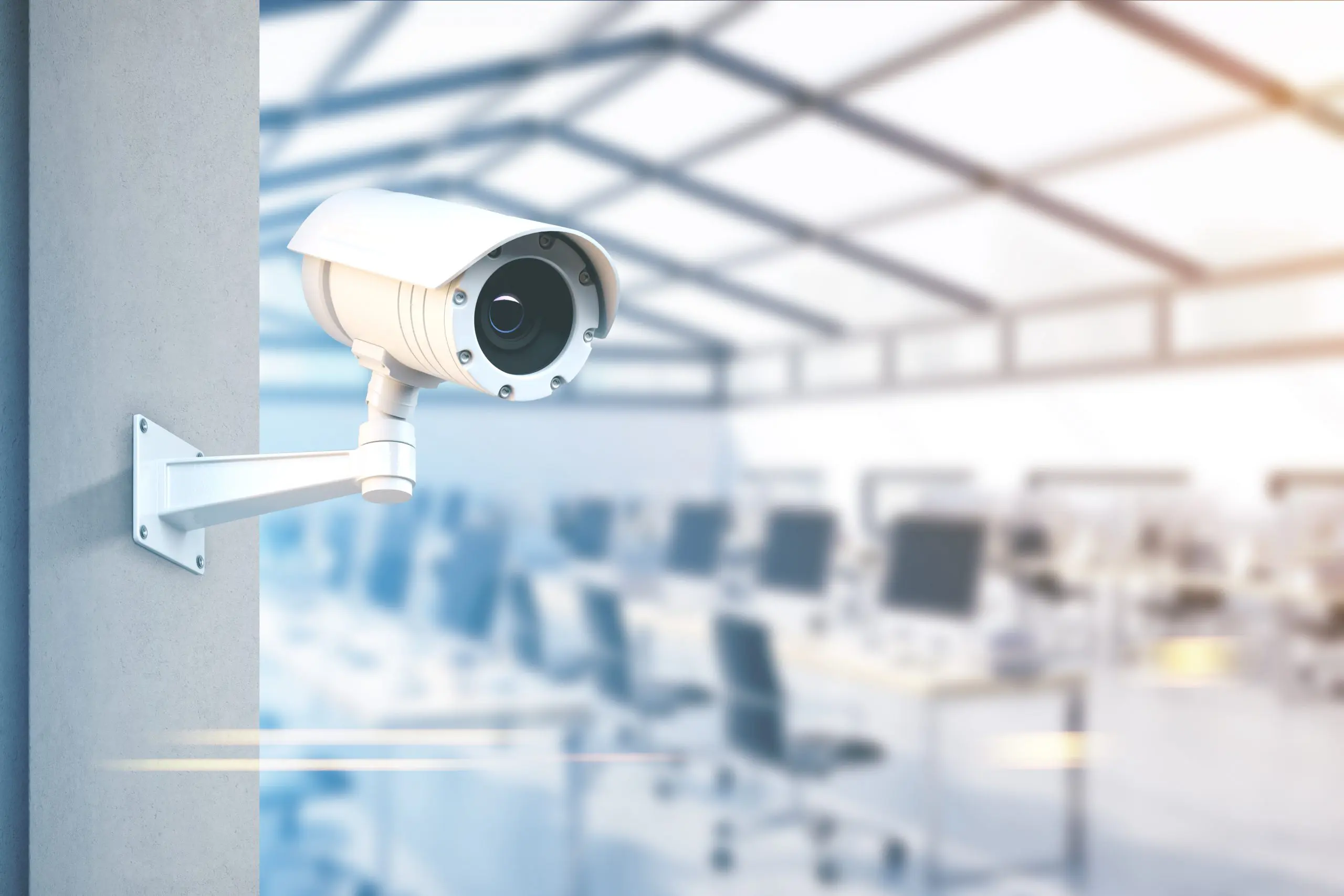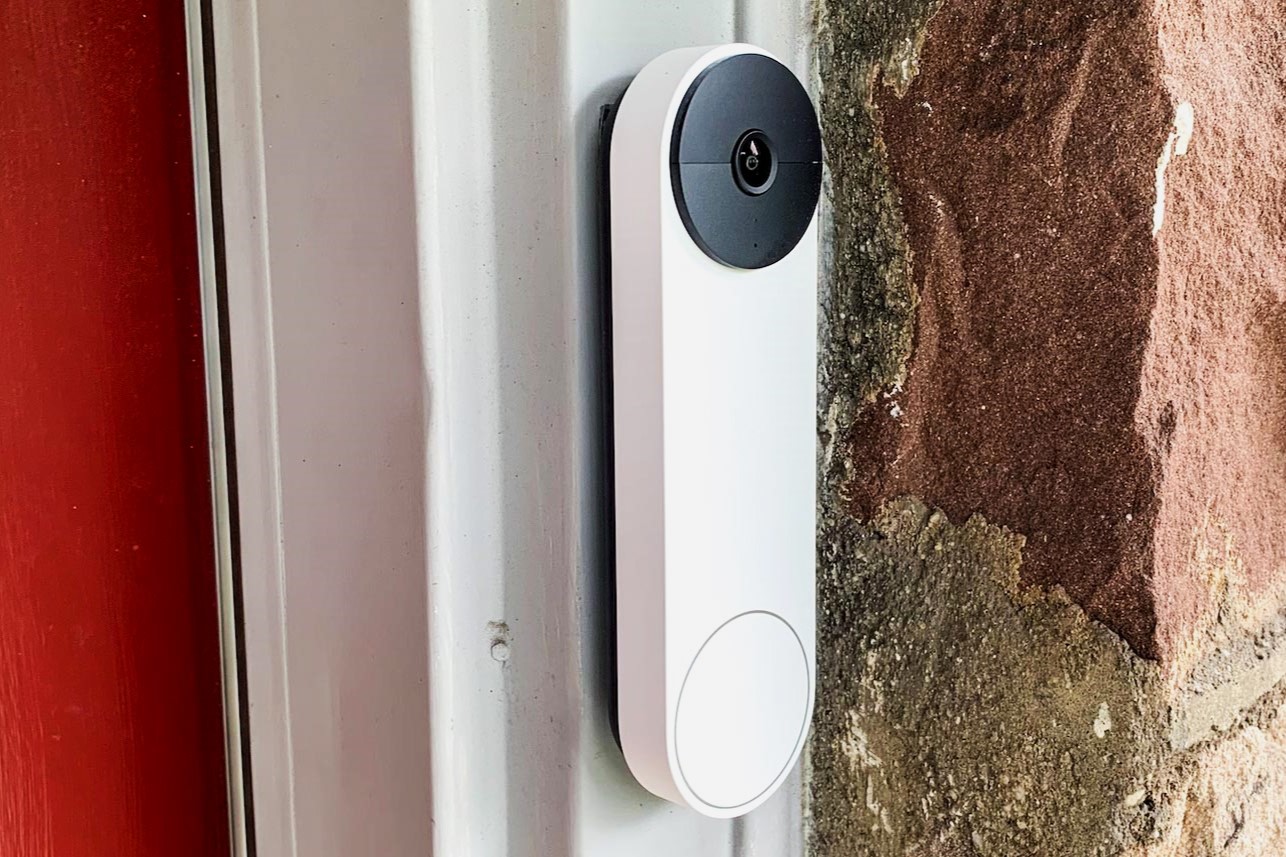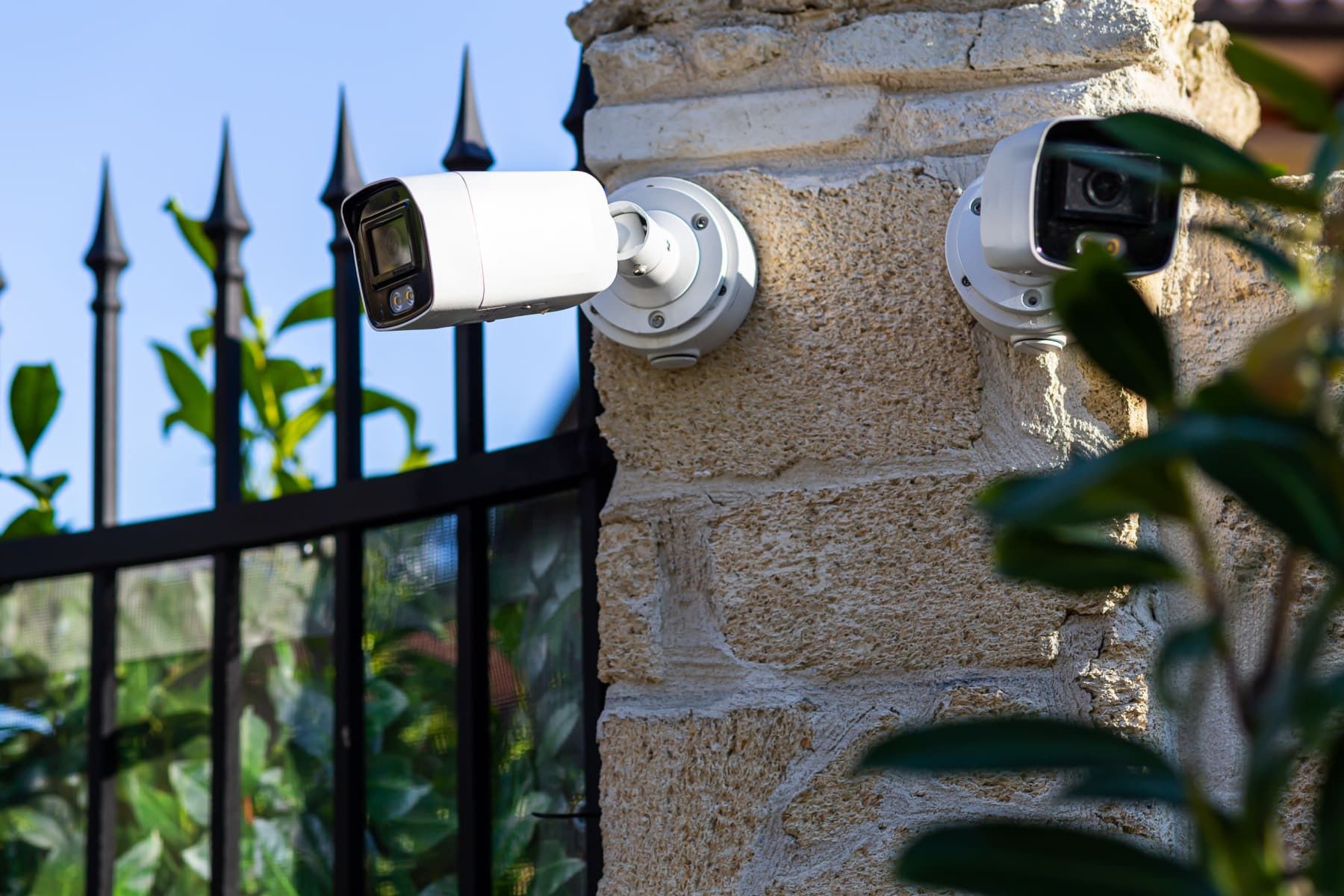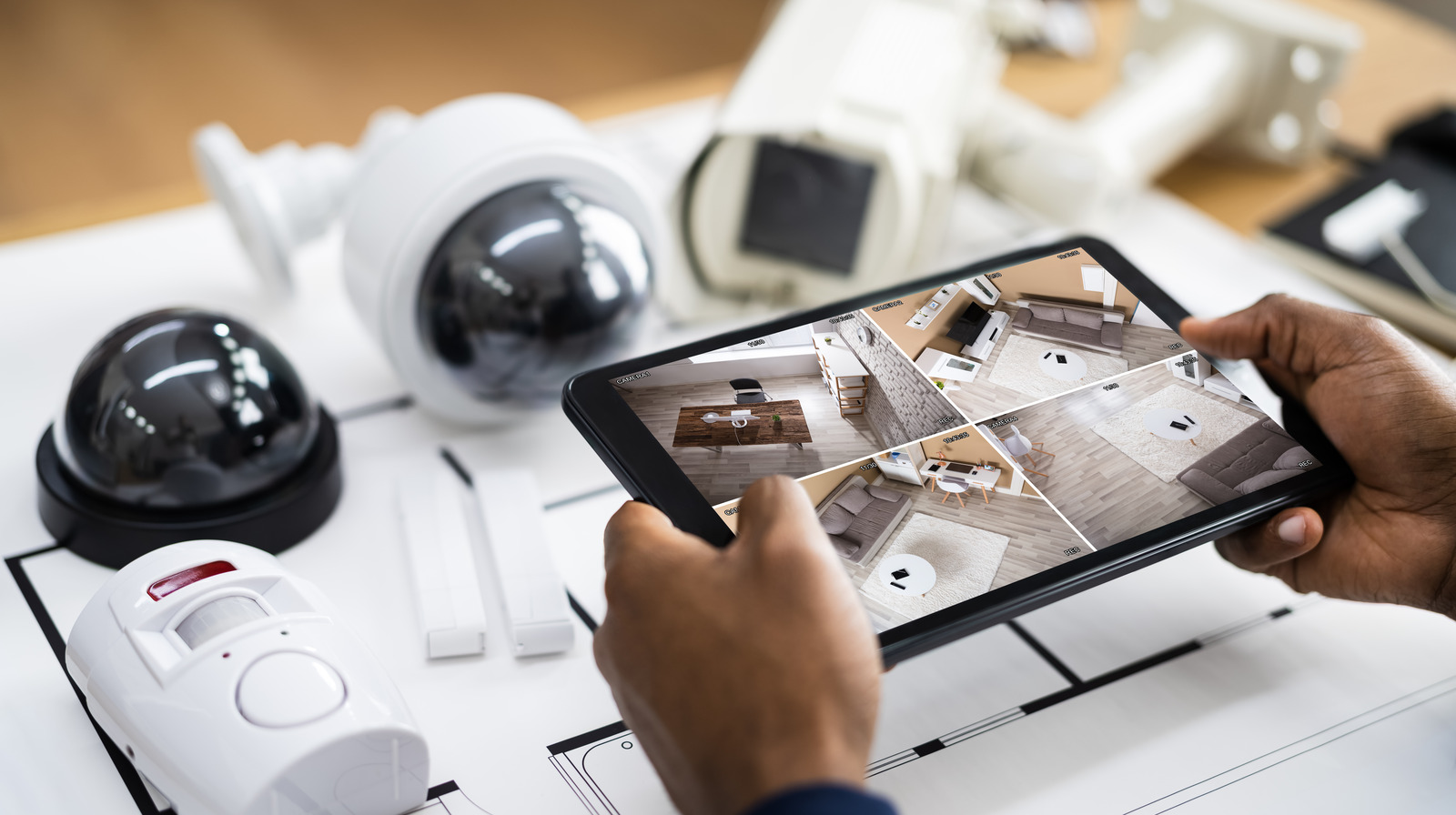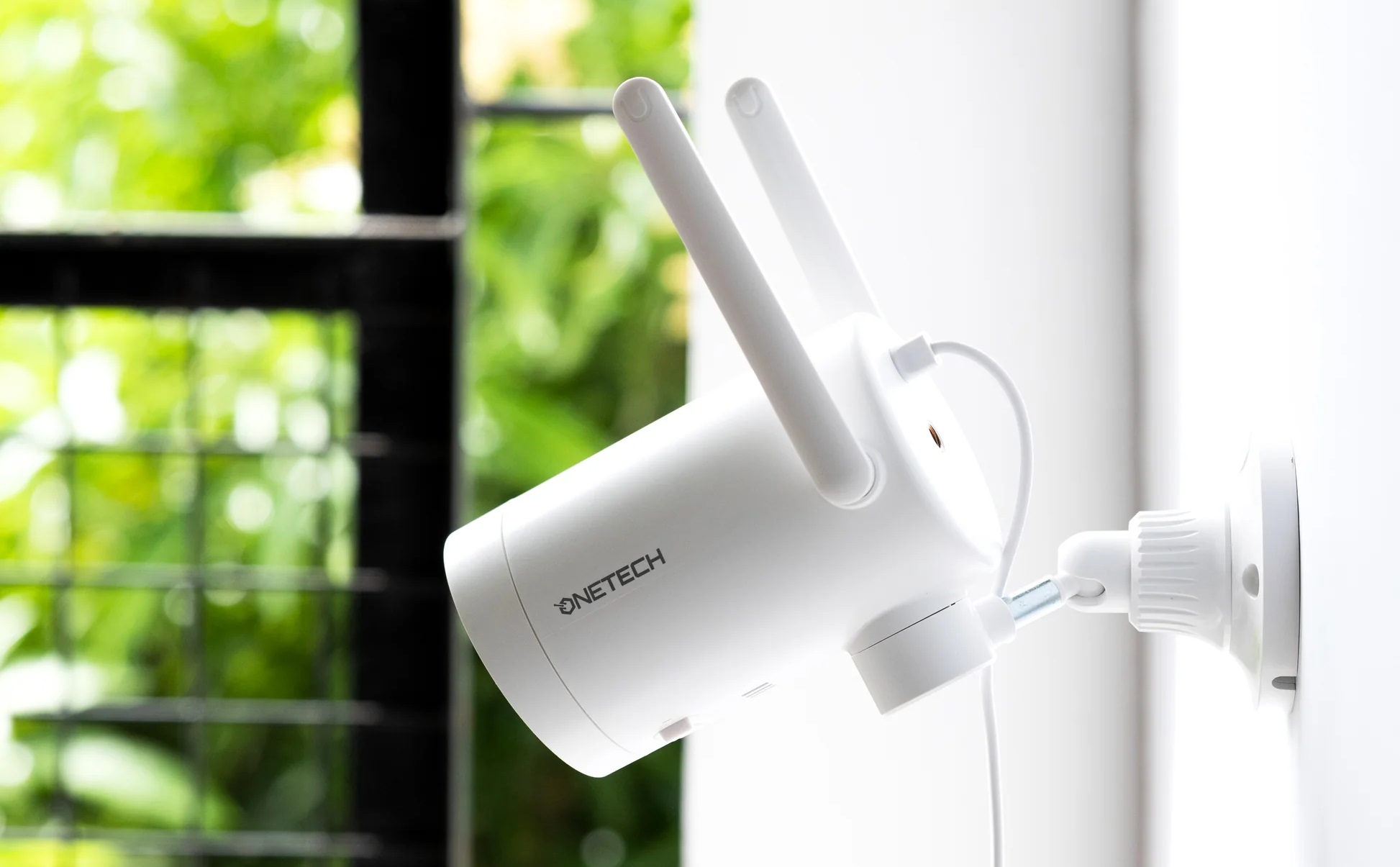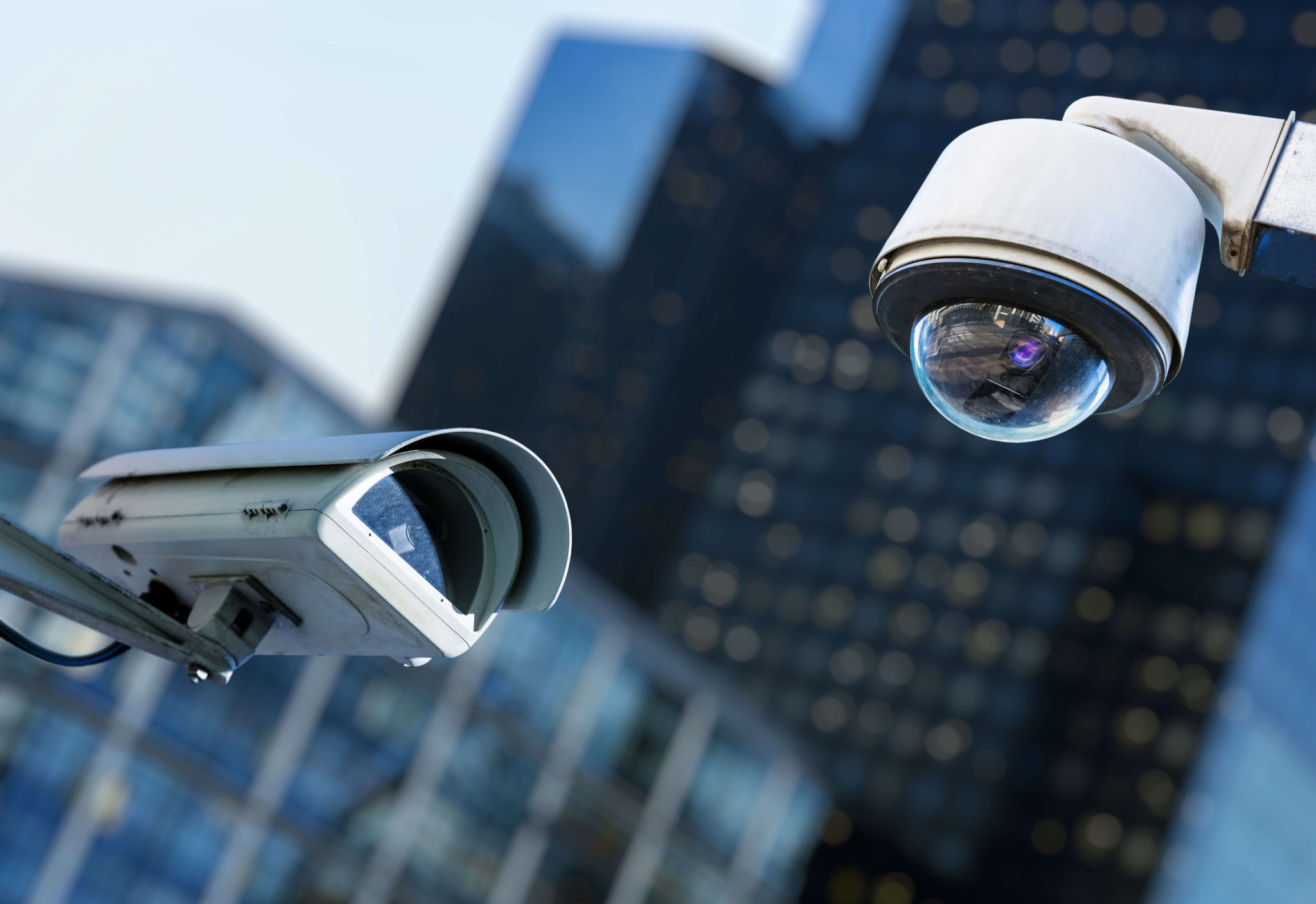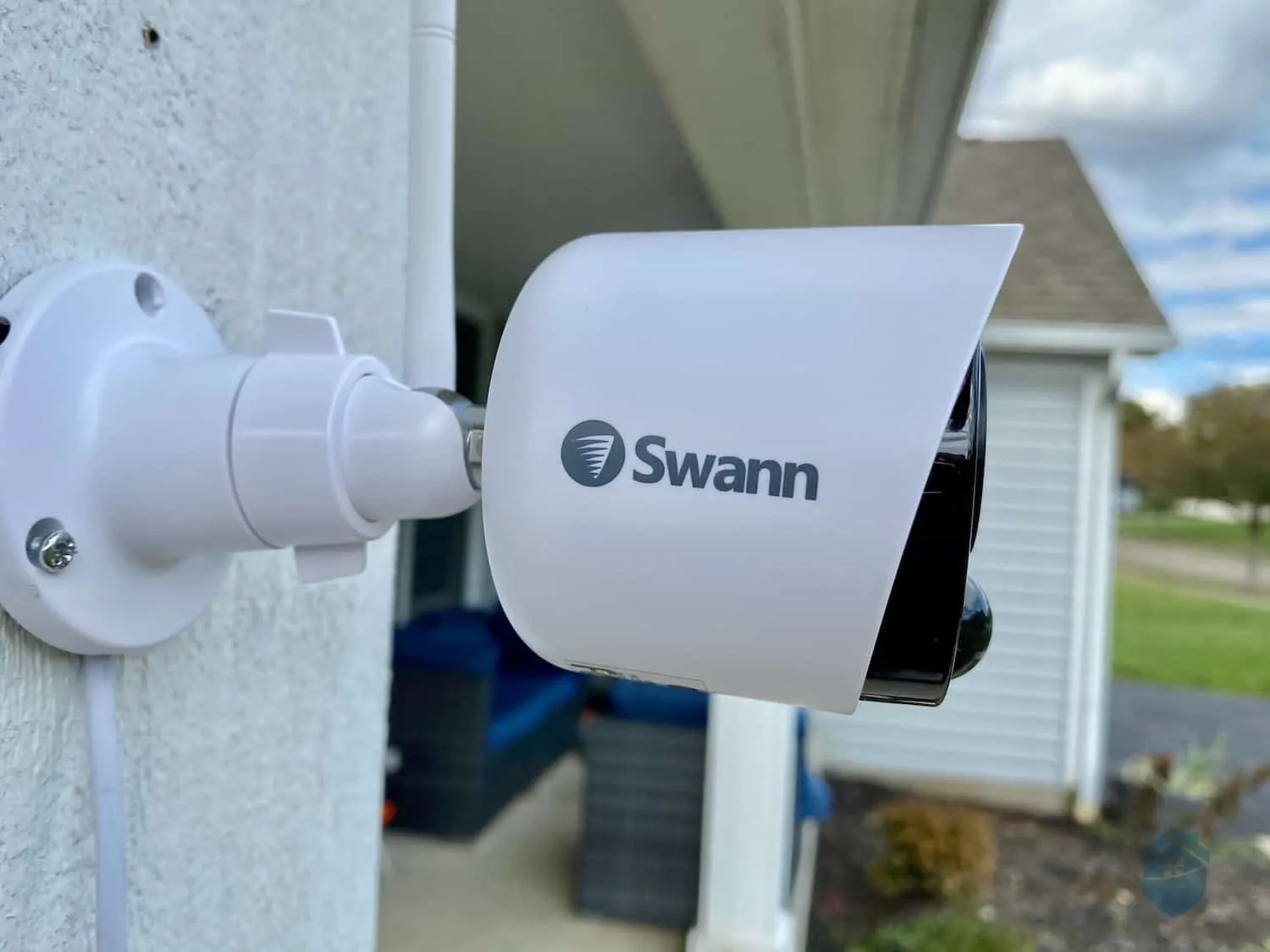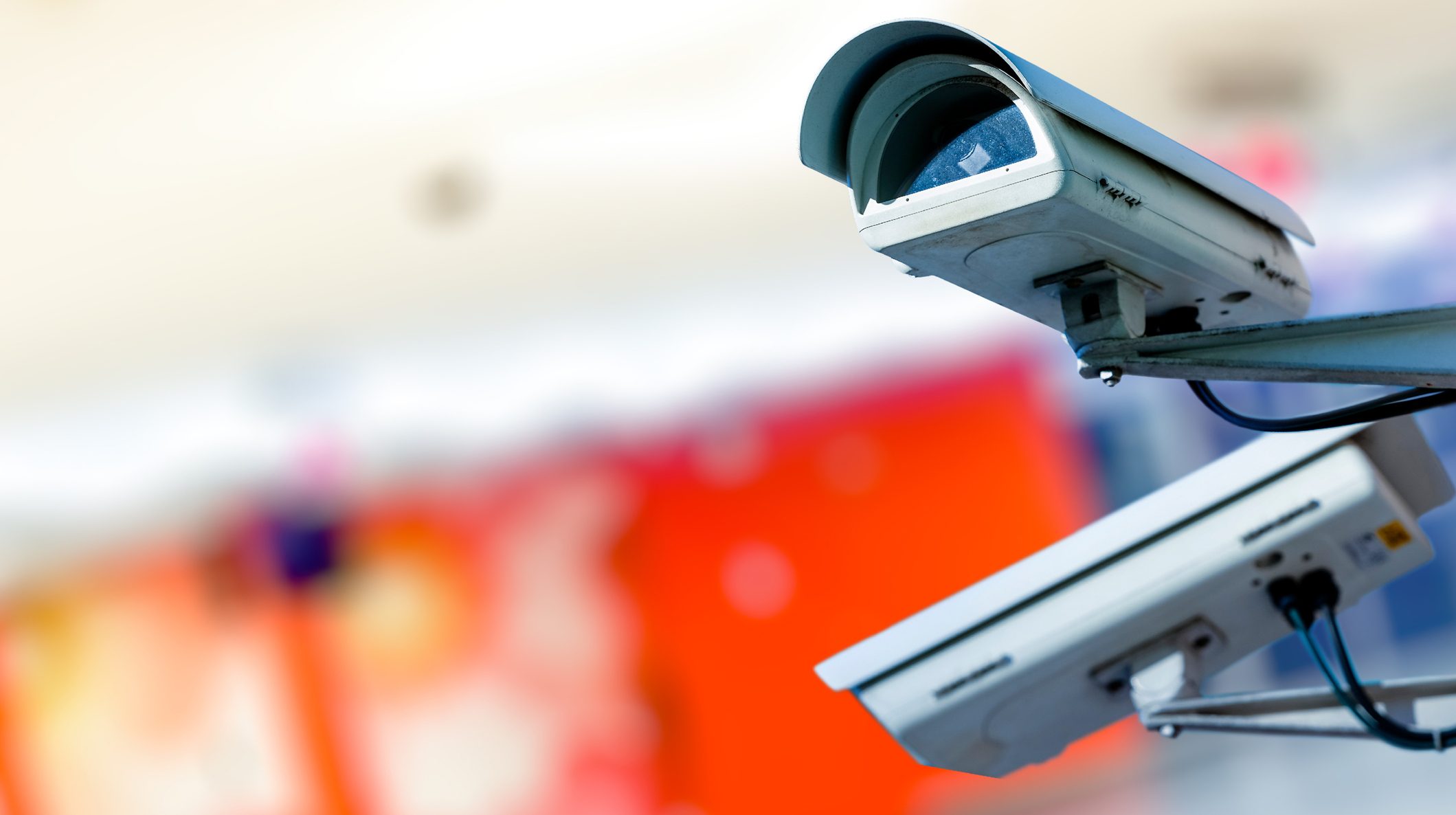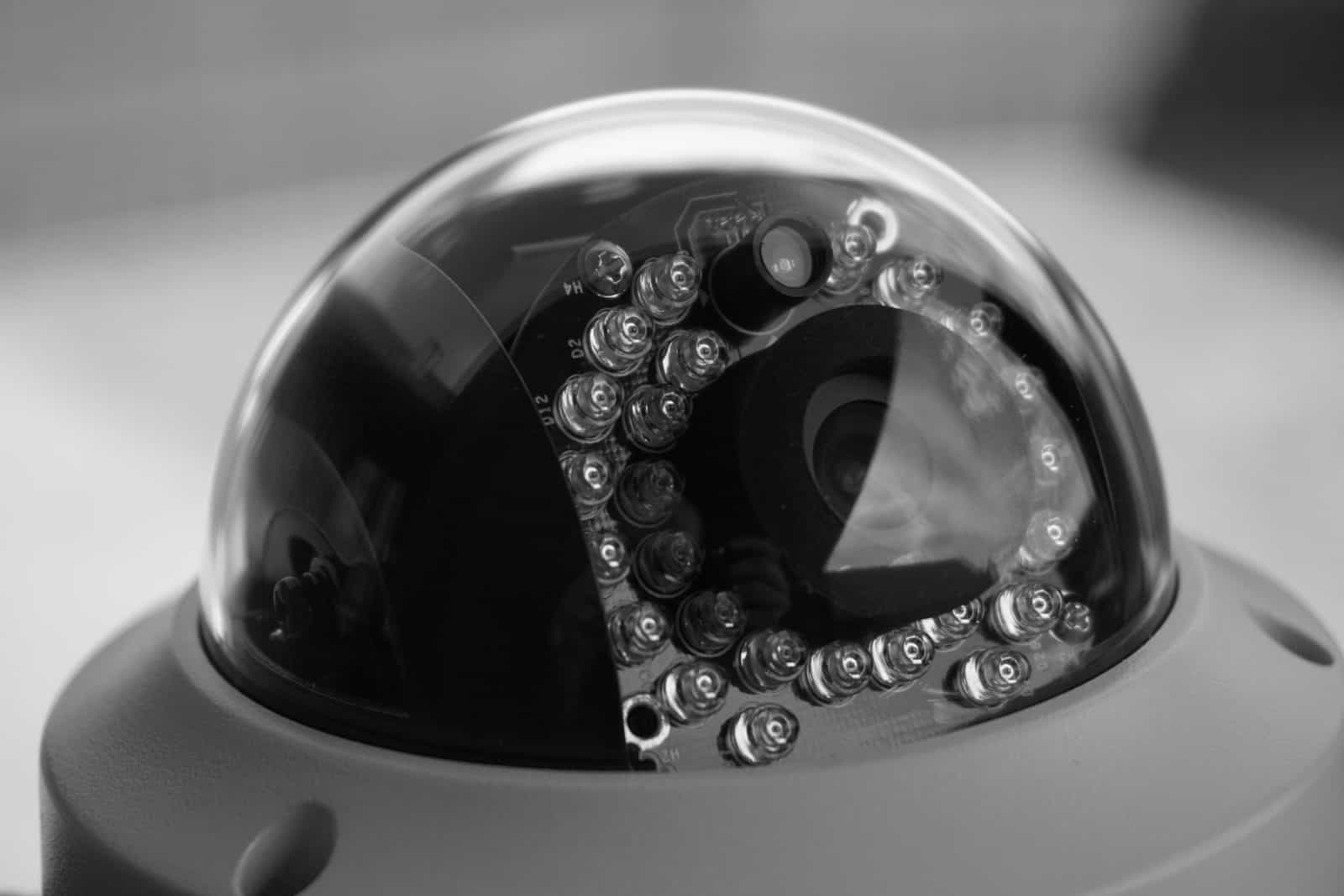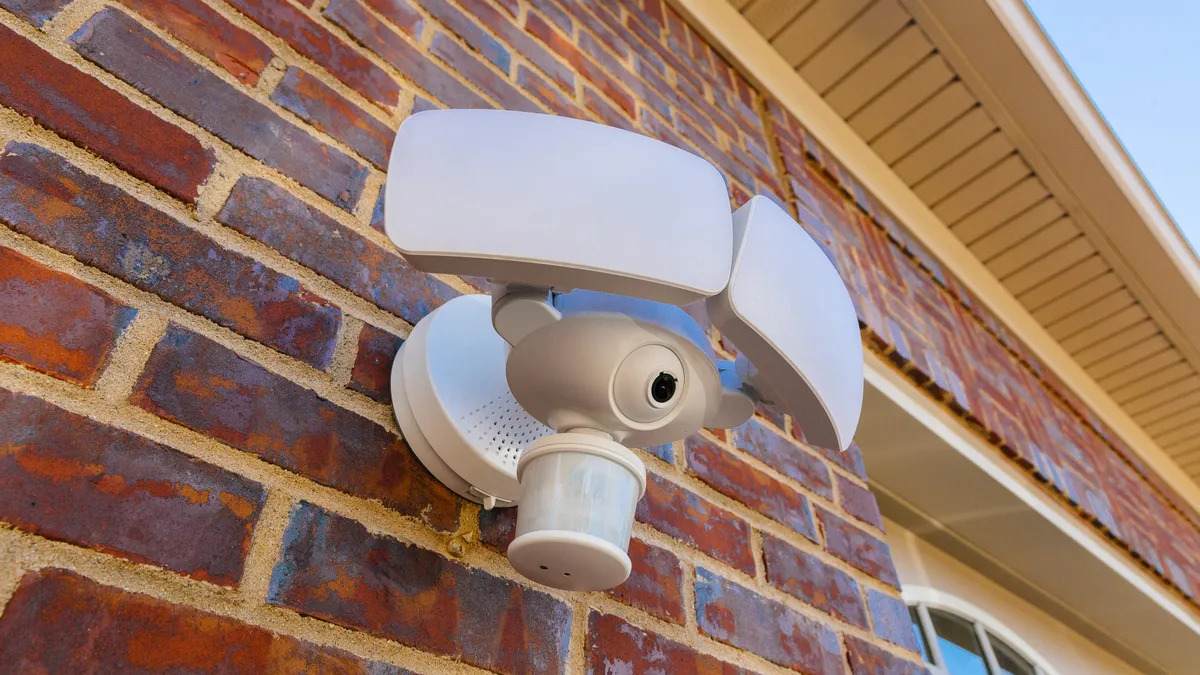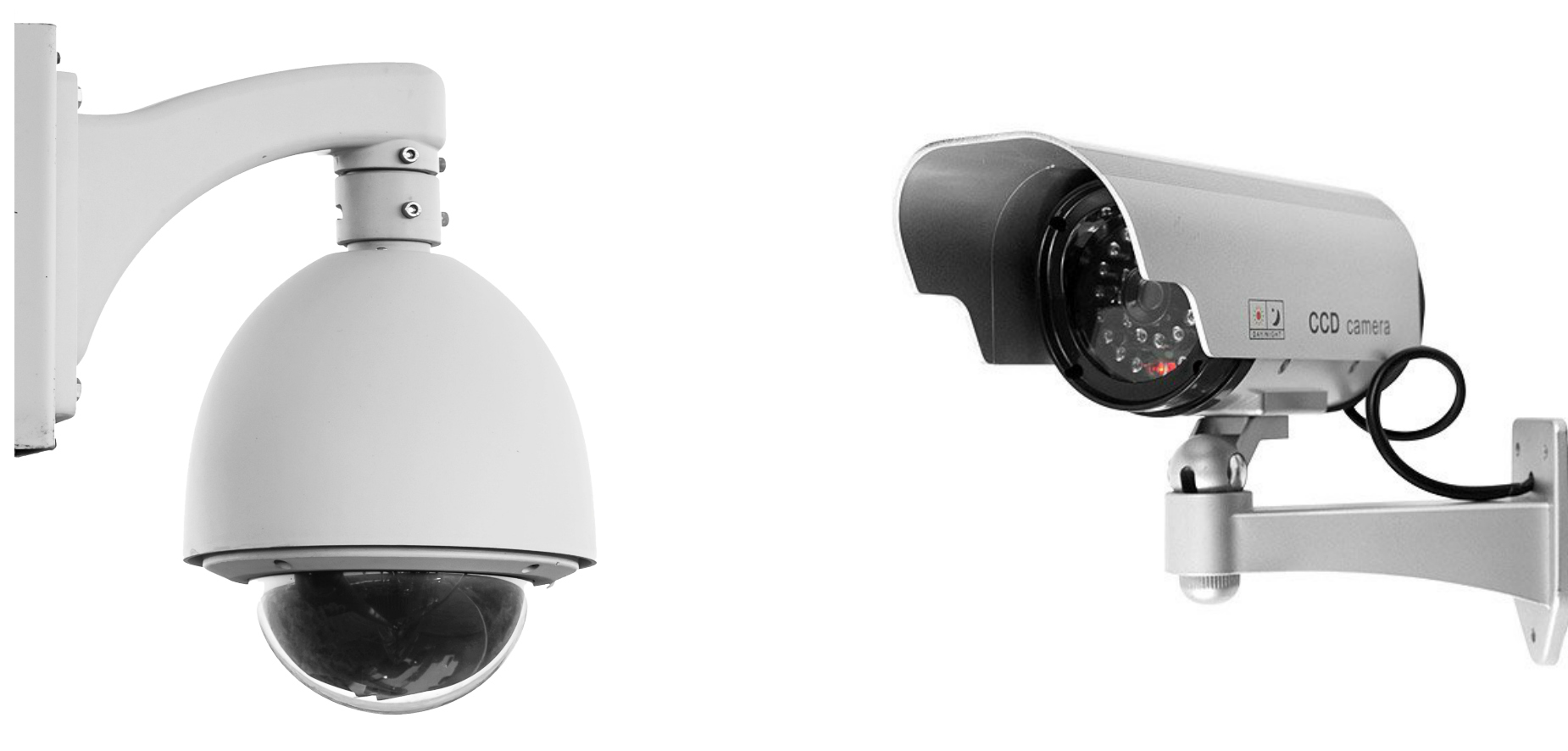Home>Home Security and Surveillance>How To Choose A Home Security Camera System
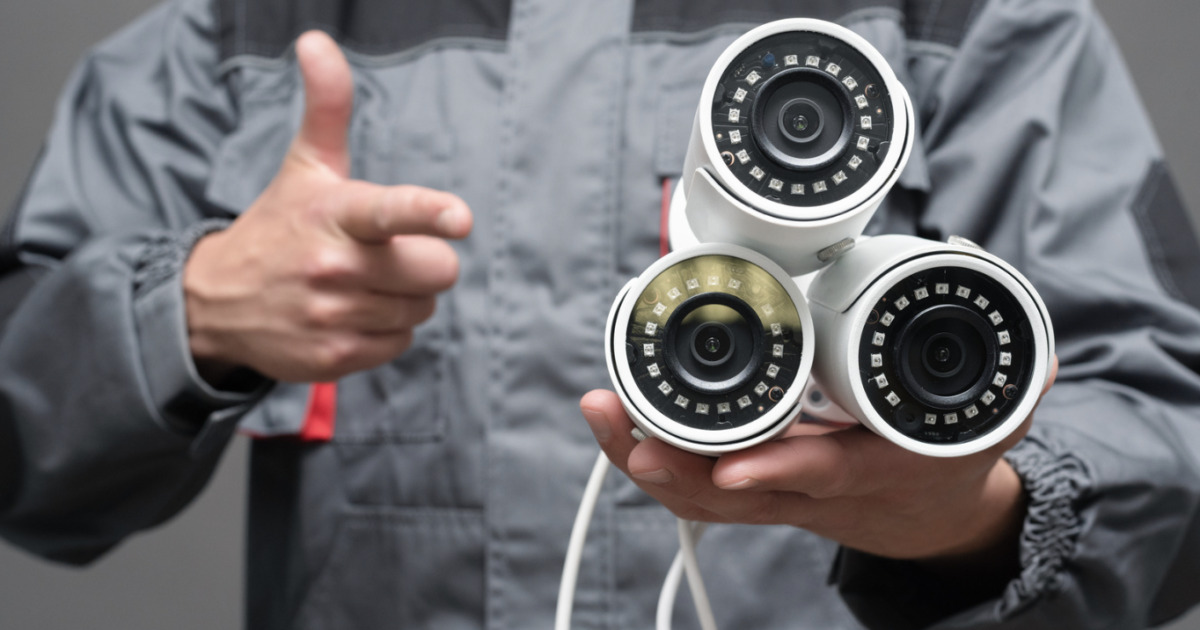

Home Security and Surveillance
How To Choose A Home Security Camera System
Modified: March 6, 2024
Learn how to choose the perfect home security camera system for your needs. Enhance your surveillance and protect your home with our expert tips and recommendations.
(Many of the links in this article redirect to a specific reviewed product. Your purchase of these products through affiliate links helps to generate commission for Storables.com, at no extra cost. Learn more)
Introduction
Welcome to the world of home security and surveillance systems! With advancements in technology, protecting your home and loved ones has never been easier. In today’s fast-paced world, it’s essential to have a reliable and effective home security camera system in place. Whether you want to deter potential intruders, monitor your property remotely, or keep an eye on your children or pets, a home security camera system can provide you with peace of mind and added security.
However, with so many options available in the market, choosing the right home security camera system can feel overwhelming. That’s where we come in. In this comprehensive guide, we will walk you through the factors to consider when choosing a home security camera system, the different types of camera systems available, popular brands, and a step-by-step guide to help you make an informed decision.
Before diving into the details, it’s important to emphasize the importance of investing in a home security camera system. With burglary rates increasing in many parts of the world, having a visible deterrent like security cameras can greatly reduce the risk of break-ins. Moreover, having recorded footage can provide vital evidence to law enforcement authorities in case of any incidents.
Whether you live in a standalone house, an apartment, or a gated community, home security camera systems are an effective way to enhance the security of your property. The presence of cameras can deter criminals and provide you with valuable evidence in case of theft, vandalism, or any unwanted activity.
Now, let’s delve into the factors you should consider when choosing a home security camera system.
Key Takeaways:
- Choose a home security camera system by considering factors like budget, camera type, resolution, connectivity, and installation. Research brands and models, read reviews, and follow a step-by-step guide for a reliable and effective security solution.
- Assess your security needs, determine your budget, and research different brands and models to choose the right home security camera system. Consider features like video resolution, night vision, and motion detection for optimal protection and peace of mind.
Read more: How To Choose Security Cameras
Factors to Consider
When choosing a home security camera system, there are several important factors to consider. Each factor plays a vital role in determining the effectiveness and functionality of the system. Here are the key factors to keep in mind:
- Budget: First and foremost, determine your budget for the home security camera system. Prices can vary significantly depending on the brand, features, and number of cameras included in the package. It’s important to strike a balance between your budget and the level of security you require.
- Type of Camera: There are various types of cameras available, including dome cameras, bullet cameras, PTZ (pan-tilt-zoom) cameras, and hidden cameras. Consider your specific surveillance needs and the area you want to monitor to determine the most suitable type of camera for your requirements.
- Resolution: The resolution of the camera determines the clarity of the footage. Higher resolutions, such as Full HD (1080p) or even 4K, provide sharper and more detailed images. However, higher resolution cameras may come at a higher cost.
- Connectivity Options: Consider how you want to connect your cameras to your viewing device or recording system. Wired connections offer a stable and reliable connection, while wireless cameras provide flexibility and easy installation. Some cameras also offer the convenience of both wired and wireless connectivity options.
- Field of View: The field of view (FOV) refers to the area that the camera can capture. A wider FOV allows you to monitor a larger area with a single camera. Depending on your surveillance needs, you may opt for cameras with adjustable FOV or multiple cameras to cover a larger area.
- Night Vision: If you require surveillance during nighttime or low-light conditions, choose cameras with good night vision capabilities. Infrared (IR) LED technology is commonly used in cameras to provide clear night vision images.
- Motion Detection: Motion detection technology enables the camera to detect any movement within its frame. This feature can be highly beneficial as it can trigger recording, send alerts to your smartphone, or activate other security measures when motion is detected.
- Audio Recording: Some cameras come with built-in microphones to capture audio along with the video footage. This can be useful for monitoring conversations or detecting unusual sounds within the monitored area.
- Storage Options: Consider how the footage will be stored. Some cameras offer local storage options, such as SD cards or internal storage, while others may require a separate network video recorder (NVR) or cloud-based storage subscriptions. Evaluate your storage needs and choose a system that suits you best.
- Installation Requirements: Take into account the level of expertise and effort required for installation. Some systems require professional installation, while others are more DIY-friendly. Assess your technical skills and the complexity of the installation process before making a decision.
By considering these factors, you’ll be in a better position to choose a home security camera system that meets your specific requirements and provides you with the desired level of security.
Types of Home Security Camera Systems
When it comes to home security camera systems, there are various types to choose from. Each type offers unique features and benefits, catering to different surveillance needs and preferences. Here are the most common types of home security camera systems:
- Wired Cameras: Wired cameras require a physical connection to a power source and a video recorder or monitor. They offer a stable and reliable connection, making them a popular choice for long-term surveillance. However, the installation process for wired cameras can be more complex, as it involves running cables and wires through walls and ceilings.
- Wireless Cameras: Wireless cameras are easy to install and offer greater flexibility in terms of placement. They connect to the viewing device or recording system using Wi-Fi or other wireless technologies. This makes them ideal for situations where wired connections are impractical or not possible. However, wireless cameras may be susceptible to interference, and the signal range can vary depending on your environment.
- Battery-Powered Cameras: Battery-powered cameras are a convenient option for areas where electrical outlets are scarce or inaccessible. These cameras are typically wireless and operate on rechargeable batteries, offering flexibility in terms of placement. However, it’s important to regularly monitor battery levels and recharge or replace them as needed.
- PoE (Power over Ethernet) Cameras: PoE cameras utilize a single Ethernet cable for both power and data transmission. This eliminates the need for separate power cables and simplifies the installation process. PoE cameras are commonly used in larger surveillance systems where multiple cameras are connected to a central network video recorder (NVR). PoE technology provides a stable and reliable connection, making it a popular choice for professional installations.
Choosing the right type of home security camera system depends on factors such as your specific surveillance needs, installation requirements, and available power and connectivity options. Consider your individual circumstances and preferences to determine the most suitable type for your home.
Popular Home Security Camera Brands
When it comes to home security camera systems, there are several reputable brands that offer reliable and high-quality products. These brands have established a strong presence in the market and are known for their advanced features, durability, and customer satisfaction. Here are some popular home security camera brands to consider:
- Brand A: Brand A is renowned for its cutting-edge technology and innovative features. They offer a wide range of cameras with varying resolutions, connectivity options, and advanced motion detection capabilities. Brand A is known for its user-friendly interfaces and intuitive mobile apps for remote monitoring and control.
- Brand B: Brand B has earned a strong reputation for its reliability and durability. Their cameras are built to withstand harsh weather conditions and provide clear and sharp image quality. Brand B offers a range of wired and wireless cameras with advanced features such as night vision, motion detection, and two-way audio communication.
- Brand C: Brand C is known for its affordable yet feature-packed home security camera systems. They offer a variety of cameras with different specifications to meet various budget and surveillance requirements. Brand C focuses on user-friendly installation processes, making their systems accessible to DIY enthusiasts.
- Brand D: Brand D specializes in PoE (Power over Ethernet) camera systems, providing professional-grade solutions for larger surveillance setups. They offer high-resolution cameras with advanced video analytics and intelligent motion detection. Brand D is recognized for its robust build quality and comprehensive integration options with other security devices.
- Brand E: Brand E is known for its sleek and stylish camera designs that blend seamlessly with modern home aesthetics. They offer a range of wireless cameras with easy installation options, making them popular among homeowners looking for a hassle-free setup. Brand E focuses on providing reliable connectivity and user-friendly mobile apps for convenient monitoring.
When choosing a home security camera system, it’s advisable to consider brands that have a proven track record in terms of quality, customer support, and long-term reliability. Additionally, read reviews and seek recommendations to ensure that the brand you choose aligns with your specific surveillance needs and preferences.
When choosing a home security camera system, consider the resolution and field of view to ensure clear images and maximum coverage.
Comparison of Home Security Camera Systems
When selecting a home security camera system, it’s important to compare different options to find the one that best suits your needs. To help you in this process, let’s explore some key features to consider when comparing various camera systems:
- Feature 1: Video Resolution – Look for cameras that offer high-definition video resolution, such as Full HD (1080p) or even 4K. Higher resolutions provide sharper and more detailed footage, allowing for better identification of individuals and objects.
- Feature 2: Night Vision – Consider cameras with superior night vision capabilities, which rely on infrared (IR) technology to capture clear images in low-light or complete darkness. Ensure that the camera’s night vision range is suitable for your surveillance needs.
- Feature 3: Motion Detection – Look for cameras with advanced motion detection capabilities. This feature allows the camera to detect movement and trigger recording or send alerts to your smartphone. Adjustable sensitivity and customizable motion zones can help reduce false alarms.
- Feature 4: Two-Way Audio – Some cameras come with built-in microphones and speakers, enabling two-way audio communication. This feature allows you to listen to audio from the camera’s location and speak through the camera, making it useful for monitoring and interacting with individuals at the monitored area.
- Feature 5: Remote Viewing and Control – Ensure that the camera system offers remote viewing and control capabilities. With a mobile app or web portal, you can access live video feeds and recorded footage from your cameras, as well as adjust settings and receive alerts on your smartphone or computer.
While these features are important, it’s essential to consider your specific requirements and prioritize accordingly. For example, if you live in an area with low-light conditions, night vision may be a crucial feature for you. On the other hand, if you want to monitor an outdoor area, weather resistance and durability may be higher on your list of priorities.
Take the time to compare different camera systems based on these key features, as well as other factors such as price, ease of installation, and storage options. Carefully evaluating these aspects will help you make an informed decision and choose the home security camera system that best suits your needs.
Read more: How To Wire Home Security Camera System
Step-by-Step Guide to Choosing a Home Security Camera System
Choosing a home security camera system requires careful consideration and research to ensure you find the right system for your needs. To guide you through the process, follow this step-by-step guide:
- Assess Your Security Needs: Start by evaluating your specific security needs. Consider factors such as the size of your property, areas you want to monitor, and any specific surveillance requirements you may have. This assessment will help you determine the number of cameras and the features you need in your system.
- Determine Your Budget: Set a budget for your home security camera system. Determine how much you are willing to invest in the system, keeping in mind that higher-quality cameras with advanced features may come with a higher price tag. Finding a balance between your budget and desired features is essential.
- Research Different Brands and Models: Take the time to research different brands and models available in the market. Consider factors such as reputation, customer reviews, warranties, and available features. Look for brands that have a proven track record of providing reliable and high-quality products.
- Read Customer Reviews: Customer reviews can provide valuable insights into the performance and reliability of a particular camera system. Read reviews on reputable websites or forums to gauge the user experience and satisfaction levels. Pay attention to common positive or negative feedback to make an informed decision.
- Consider Professional Installation: Assess whether you have the technical skills and knowledge to install the camera system yourself. If not, consider hiring a professional installation service to ensure proper setup and configuration. Professional installers can optimize camera placement and ensure that the system functions as intended.
- Select the Right Camera Type and Features: Based on your security needs and budget, select the appropriate camera type and features. Consider factors such as resolution, night vision capabilities, motion detection, audio recording, and storage options. Choose the features that are essential for your specific surveillance requirements.
- Purchase and Install Your Chosen System: Once you have decided on the camera system, make the purchase from a reputable seller or directly from the brand’s official website. Follow the manufacturer’s instructions to properly install the cameras, taking into account factors such as camera placement, wiring (if applicable), and connecting to the viewing device or recording system.
- Test and Adjust Camera Settings: After installation, thoroughly test each camera to ensure they are functioning correctly. Adjust camera settings such as motion detection sensitivity, video quality, and recording schedules according to your preferences. This step ensures that your camera system is optimized for your specific surveillance needs.
- Monitor and Maintain Your System: Regularly monitor your camera system to ensure it is operating smoothly. Check for any software updates provided by the manufacturer and apply them as necessary. Clean the cameras’ lenses and housing periodically to maintain optimal image quality. Additionally, review recorded footage when necessary and check for any abnormal activity or potential security concerns.
By following this step-by-step guide, you will be well-equipped to choose and install a home security camera system that provides the level of protection and peace of mind you desire.
Conclusion
Choosing the right home security camera system is a crucial step in enhancing the safety and security of your home. By assessing your security needs, determining your budget, and researching different brands and models, you can make an informed decision that aligns with your specific requirements and preferences.
Consider factors such as video resolution, night vision capabilities, motion detection, and remote viewing options when comparing different camera systems. Don’t forget to read customer reviews to gain insights from others’ experiences with the products.
Installation requirements also play a vital role in the decision-making process. If you lack the technical skills, considering professional installation can ensure a proper setup and optimal performance of your camera system.
Once you have selected and installed the camera system, take the time to test and adjust camera settings to optimize its performance. Regularly monitor and maintain your system, keeping an eye out for any firmware updates or potential issues that may arise.
Remember, investing in a home security camera system is an investment in the safety and well-being of your loved ones and property. It provides peace of mind, deters potential intruders, and provides crucial evidence in case of any unwanted incidents.
By following the step-by-step guide provided in this article and considering the factors mentioned, you can confidently choose a home security camera system that meets your specific needs and ensures the protection of your home.
Now that you are equipped with the knowledge and guidance, go ahead and make an informed decision to enhance the security of your home with a reliable and effective home security camera system.
Frequently Asked Questions about How To Choose A Home Security Camera System
Was this page helpful?
At Storables.com, we guarantee accurate and reliable information. Our content, validated by Expert Board Contributors, is crafted following stringent Editorial Policies. We're committed to providing you with well-researched, expert-backed insights for all your informational needs.
